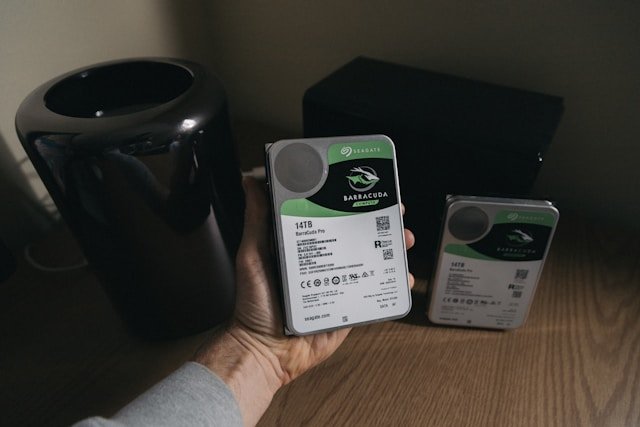Data Storage
Data Storage-as-a-service plans and features
Data redundancy and reliability features to ensure data integrity and availability.
Cost-effective and reliable option lowering total cost of ownership, including initial setup costs
Design and implementation services assessing your data access patterns and, performance needs

hassle-free setup
Quick and efficient deployment of data center storage, minimizing downtime and allowing businesses to seamlessly integrate their systems with minimal technical complexity and disruption.
maximum performance
Optimal speed, reliability, and efficiency, ensuring fast data access, processing, and minimal latency for high-demand applications and seamless user experiences.
99% server uptime
Guarantee data center storage reliability, ensuring systems are operational and accessible nearly all the time, reducing downtime and maintaining business continuity.
The Best Planning, with Best Performance create the Best Results.
Alicance Data Centers – DSaaS Data Storage Types

Block storage divides data into fixed-size blocks and stores them separately, each with a unique identifier. This storage method offers high performance, flexibility, and reliability, making it ideal for databases, virtual machines, and high-transaction applications. Advantages include low latency and high input/output operations per second (IOPS), allowing for rapid data access and processing. Block storage can be easily integrated with various operating systems and applications, providing versatility. Its structure also enables efficient data backup and recovery processes. Additionally, the ability to scale storage capacity without impacting performance makes it suitable for enterprise-level storage needs.

File storage, also known as file-level storage or NAS (Network Attached Storage), organizes data in a hierarchical structure of files and folders, making it easy to manage and retrieve data. Advantages include simplicity and ease of use, as users can access and share files across multiple devices and platforms seamlessly. It is ideal for storing unstructured data such as documents, images, and videos. File storage provides robust data protection features, including snapshots and replication, ensuring data integrity and availability. Its compatibility with standard protocols like NFS and SMB makes it a practical choice for collaborative environments and shared storage needs.

Object-based storage stores data as objects, each containing the data itself, metadata, and a unique identifier. This storage method excels in scalability, allowing for the storage of vast amounts of unstructured data such as multimedia files, backups, and big data. Advantages include cost-effectiveness, as it efficiently handles large volumes of data with minimal overhead. Its flat structure simplifies data management and retrieval. Object storage also offers built-in data redundancy and durability, ensuring data availability and integrity. Additionally, its compatibility with cloud environments and APIs makes it a preferred choice for modern applications and large-scale data storage solutions.
choose your dedicated DSaas package
We offer all three types of backup storage. Contact us to get the best possible pricing perfect for your needs.

frequently asked questions
When you evaluate data centers for your needs, you often have critical questions to ensure they meet your requirements. Here are six common questions we have been asked and their answers.
Hot storage is a type of data storage designed for data that needs to be accessed frequently and quickly. It is characterized by high-speed access and low latency, making it ideal for applications that require real-time data processing and retrieval, such as transaction processing, video streaming, and active databases. Hot storage typically uses high-performance storage media like solid-state drives (SSDs) to ensure rapid data access. Businesses should use hot storage when they have data that is critical for day-to-day operations and needs to be accessed or modified frequently, ensuring seamless and efficient workflows.
Cold storage saves costs by using less expensive storage media and infrastructure optimized for infrequent access. Unlike hot storage, which relies on high-speed SSDs, cold storage often uses high-capacity hard disk drives (HDDs) or magnetic tapes, which are more cost-effective per gigabyte. Additionally, cold storage systems are designed to consume less power and require less cooling, further reducing operational expenses. The lower performance requirements of cold storage also mean that less investment is needed in high-end hardware and maintenance. These factors make cold storage a financially efficient solution for archiving large amounts of data that do not require immediate access.
Hybrid storage offers several key benefits for businesses. It provides a balanced approach to data storage, optimizing both performance and cost. Frequently accessed data benefits from high-speed access and low latency, while less frequently accessed data is stored more economically, reducing overall storage costs. Hybrid storage also offers scalability, allowing businesses to grow their storage capacity as needed without significant investment. The automated tiering feature ensures that data is dynamically allocated to the appropriate storage tier based on usage patterns, improving efficiency. Additionally, hybrid storage solutions often include robust data protection and redundancy features, ensuring data integrity and availability.
Tape drives are data storage devices that use magnetic tape as a medium for recording and retrieving digital information. They are known for their high capacity and low cost per gigabyte, making them suitable for long-term data archiving and backup. Tape drives are ideal for storing large volumes of data that do not require immediate access, such as archival records, compliance-related documents, and disaster recovery backups. Businesses should consider using tape drives when they need a reliable and cost-effective solution for long-term data retention, where high performance and quick access are not primary requirements.
Tape drives are designed for sequential data access, which means that retrieving specific data can take longer compared to random access storage solutions like SSDs or HDDs. When data is requested from a tape drive, the tape must be physically wound to the correct position, resulting in higher latency. This makes tape drives less suitable for applications requiring frequent or immediate access to data. However, they are highly efficient for large-scale data backups and long-term archival, where data retrieval is infrequent. Businesses should use tape drives for data that does not require real-time access but needs reliable and cost-effective storage.
Block storage is a data storage method that divides data into fixed-size blocks and stores them separately, each with a unique identifier. This approach allows for efficient data management and quick access, as blocks can be stored and retrieved independently. Block storage is commonly used in enterprise environments for applications requiring high performance and low latency, such as databases, virtual machines, and transaction processing systems. Each block operates as an individual hard drive, which the operating system can manage directly. This flexibility and efficiency make block storage a preferred choice for high-demand applications and complex data storage needs.
A simple email or chat is all it takes to get in touch.
Support Email
talk to our agent


